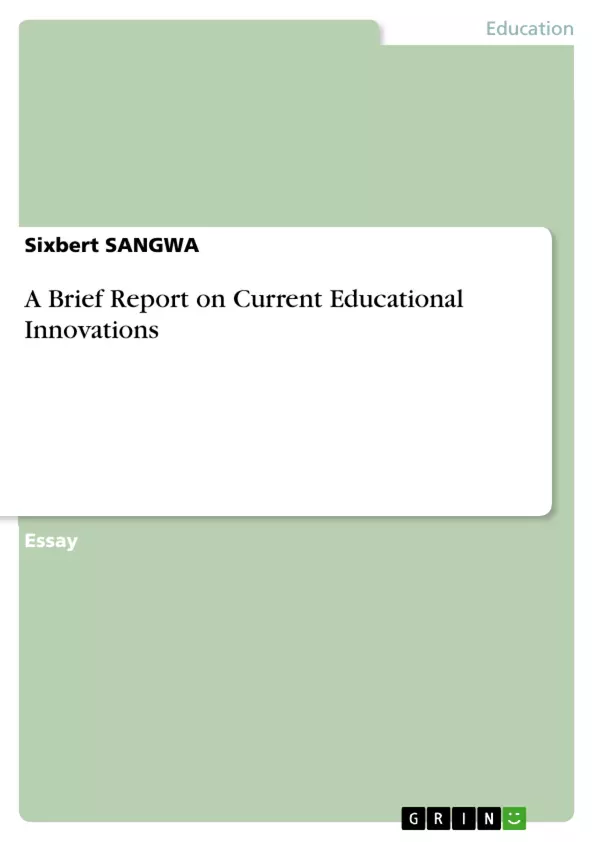This short report is developed for a child-focused organization that provides a range of training in the humanitarian refugee settings. The organization is in charge of child protection, ensuring children’s physical, social, emotional and cognitive development through different psychosocial activities and life skills sessions held in traditional classrooms. Furthermore, the organization uses the same approach to build and strengthen the capacity of partner organization staffs, local authorities and community structures. The organization is currently planning to run tablet-based sessions in different centers for children and adolescents, an approach that supports different new technologies and pedagogies, described as eLearning innovations.
The emergence of the knowledge society and the knowledge-based economy marks a new era for education and training. In response to the growing global demand for higher education, recent studies highlight that there is remarkable increasing use of technology in education. As eLearning evolves, different education institutions and training providers are gradually forced to adopt very recent innovations that meet the current education needs according to their spheres.
Inhaltsverzeichnis (Table of Contents)
- Innovation in e-learning
- Example of Recommendable Innovations
- Digital games
- Place-based learning
- Social Media
- Discussion on the above Innovations
- Digital games and playful learning
- Place-based learning
- Social Media
Zielsetzung und Themenschwerpunkte (Objectives and Key Themes)
This report aims to provide a comprehensive overview of innovative e-learning technologies that can be effectively implemented in a child-focused organization operating in humanitarian refugee settings. The report focuses on how these technologies can support children's physical, social, emotional, and cognitive development through playful learning approaches.
- Innovative e-learning technologies in education
- Playful learning approaches in humanitarian settings
- The integration of digital games, place-based learning, and social media into education
- The potential of technology to enhance child development
- The role of technology in promoting learning in refugee contexts
Zusammenfassung der Kapitel (Chapter Summaries)
The report begins by defining "innovation" in the context of e-learning, emphasizing the integration of new or improved solutions to meet contemporary learning needs. The second section explores three key innovations: digital games, place-based learning, and social media. Each innovation is explained in detail, highlighting its potential benefits for educational settings.
The third section delves into a discussion of how these innovations can be applied effectively in a child-centered organization operating in refugee contexts. The focus here is on how digital games and playful learning approaches can engage children and promote their cognitive development.
Schlüsselwörter (Keywords)
The core focus of this report centers around innovation in e-learning, particularly within the context of humanitarian settings. Key themes include playful learning, digital games, place-based learning, and social media. The report emphasizes the potential of these technologies to enhance child development and promote learning in refugee contexts.
- Quote paper
- Dr. Sixbert SANGWA (Author), 2019, A Brief Report on Current Educational Innovations, Munich, GRIN Verlag, https://www.grin.com/document/1012779



